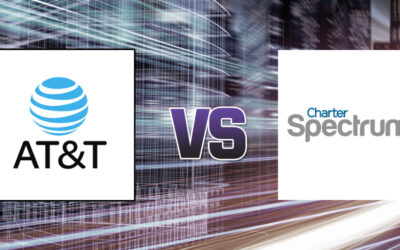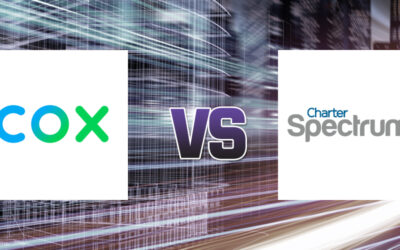COX and Xfinity are both reliable ISPs with a broad range of services. Each offers fast internet and bundles that can help you save on your monthly budget. But, is one better than the other? Maybe. If you’re browsing for deals and both offer service in your area, making a choice might be tricky. Here, we watch the two go head to head so you can make a better choice for your family’s plan.
Best Pricing, Contracts and Bundles: Tie (Both offers discounts for multiple services)
Fastest Internet Speeds & Reliability: Xfinity (2-gig speeds can’t be beaten)
Local Availability & Coverage: Xfinity
Bonus Features & Add-Ons: Cox
|
|
Cox vs Xfinity: Pricing, Contracts and Bundles
Let’s get the burning question out of the way first: which internet provider is cheaper between Cox and Xfinity? That’s a tough question to answer since they each have a rotating carousel of specials. For basic internet, which is up to 25 Mbps, Cox starts at about $30 per month. Xfinity’s Performance Starter is usually close to the same price, but, again, discounts change often and vary by location.
If you are looking for a bundle, you may be able to save up to $100 per month by packaging your internet, television, home phone, and home security with either of these companies. For the best prices, you’re going to need to sign a contract of at least 12 months, whether you choose standalone internet or a package. COX’s termination fees max out at $360; Xfinity’s begin at $230. Both of these dollar figures assume canceling a 24-month contract early in your service. However, it’s important to note that fees decrease each month your service remains active.
Cox vs Xfinity: Internet Speed & Reliability
Shopping for price is only half of the picture. You also want to account for speed. After all, if you work from home, have kids that play online games, and often stream your television, a low-speed plan will only bring you frustration. Xfinity starts at a faster 50 Mbps, while Cox offers a 25 Mbps plan. For those of you searching for a lightning-quick connection, Xfinity might be a better choice. Although not available in all regions, Xfinity’s 1200 Mbps and 2-gig options are way ahead of the competition.
COX doesn’t disappoint, either. With download speeds of up to 940 Mbps, COX’s Gigablast internet can easily power 10 or more devices. Your family will enjoy no-lag video gaming and television streaming while you handle business in your home office without losing productive hours to a slow connection. Realistically, most home users will do just fine with service somewhere in the middle of each company’s offerings.
Cox vs Xfinity: Local Availability
As a Comcast brand, Xfinity is one of the largest internet service providers in the US. With service available in 40 states, nearly 16 million homes have access to Xfinity internet service. COX – the largest private broadband company in the US – is much smaller but is still considered one of the top ISPs in the nation. At 6.5 million current customers and availability in 18 states, COX is still a powerhouse with plenty of overlap.
You can use the lookup tools below to determine what’s available in your area.
Cox vs Xfinity: Unlimited Data & Other Features
Unlimited internet might sound like a dream. But, neither company offers it without an added fee. Before you get antsy about overages, consider that COX and Xfinity both have a generous data allowance of around 1.2TB each month. Even with heavy usage, you are unlikely to exceed these limits. To do so, you would have to stream music, video, and games for more than 600 hours each month. And, even then, you likely never reach a full terabyte.
As for other features, secure WiFi hotspots throughout us make both COX and Xfinity attractive choices for users wanting to do more with their internet while saving their cell phone’s mobile data plan. Something else to consider with each company is that you’ll likely get a better deal if you want to bundle your cable, internet, and other services. One area where COX stands out here is that it upgrades your WiFi equipment for free every three years.
Cox vs Xfinity: Which is Better Overall?
There is no easy way to answer this question without knowing what’s available in your area. Before you decide, you want to define what you want and need out of your internet. If lightning-fast speeds are a necessity, Xfinity is the winner by leaps and bounds. But, if you’d rather spend your money on a privately owned company that has similar capable abilities for low and mid-tear packages, COX won’t let you down either.
|
|
FAQ:
Why are COX and Xfinity not available in all locations?
COX and Xfinity are both large companies with an expansive reach. However, there are many reasons that they both aren’t available nationwide. This primarily comes down to infrastructure. It would be nearly impossible for a single company to build and maintain cable and fiber optic lines in all 50 states.
Q: How is hardware different between COX and Xfinity?
Both Companies offer modern technology that can help ensure your home has 100% WiFi coverage. The biggest difference is that Xfinity charges more for its advanced gateways, and there are two options. COX’s Panoramic WiFi is also an upcharge, but there is only one tier, and it is slightly less expensive.
Q: How can I test my internet speed?
Use each company’s speed test feature:






